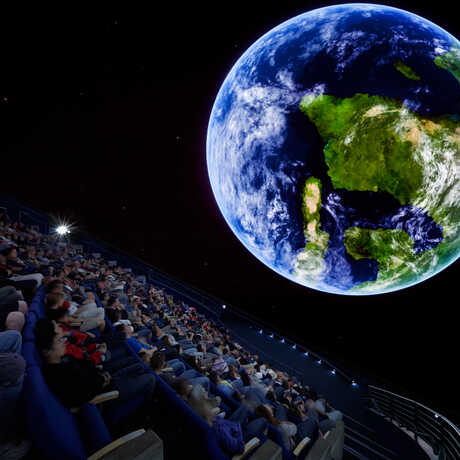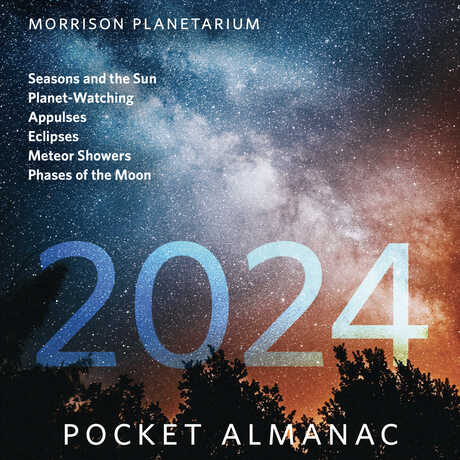Benjamin Dean Astronomy Lectures
Alien Oceans: NASA’s Europa Clipper Mission

NASA’s Europa Clipper Mission will explore the fourth largest of Jupiter’s 95 known moons. Astronomers believe it has a deep, underground ocean and more water even than Earth.
Alien Oceans: NASA’s Europa Clipper Mission
Monday, September 9, 2024
7:30 pm, Morrison Planetarium
Featuring Dr. Kevin Hand | NASA Jet Propulsion Laboratory
NASA is launching a spacecraft to Jupiter’s ocean moon Europa in October 2024 to learn more about its potential habitability. Scientists describe Europa as an “ocean world” because decades of evidence from analysis of spacecraft observations strongly suggest that an ocean of liquid water is hidden beneath the moon’s icy surface. The search for life beyond Earth is one of NASA’s primary objectives. If humans are to truly understand our place in the Universe, we must learn whether our planet is the only place where life exists. Life needs a source of energy, the presence of certain chemical compounds, and temperatures that allow liquid water to exist. Jupiter’s ocean moon Europa seems to be just such a place! Join us to learn more about Europa and why NASA wants to go there.
This lecture is in connection with a special limited roadshow, Voyage of Europa Clipper: Exploring an Alien Ocean, at the Academy September 4-9. We will open our doors early at 6:00 pm for your last chance to see a model of the spacecraft, conduct hands-on experiments, marvel at a giant model of Jupiter’s moon, snap a photo “on the moon,” and more!

Dr. Kevin Peter Hand is a planetary scientist at NASA’s Jet Propulsion Laboratory in Pasadena, California, where he directs the Ocean Worlds Lab. His research focuses on the origin, evolution, and distribution of life in the solar system with an emphasis on Jupiter’s moon, Europa. From 2011 to 2016 he served as Deputy Chief Scientist for Solar System Exploration at JPL, and from 2015-2023 he was Project Scientist for the NASA’s Europa Lander mission concept. He is the Principal Investigator of the SHERLOC spectrometer onboard the Mars Perseverance rover, which is tasked with seeking signs of habitability and past life on Mars. He is also a Co-I on the Europa Clipper mission, and a Co-I on the Titan Dragonfly mission. His work has brought him to the Dry Valleys of Antarctica, the sea ice near the North Pole, the depths of the Earth’s oceans, and to the glaciers of Kilimanjaro. Dr. Hand was a scientist onboard James Cameron’s 2012 dive to the bottom of the Mariana Trench, and he was part of a 2003 IMAX expedition to hydrothermal vents in the Atlantic and Pacific oceans. He has made nine dives to the bottom of the ocean. In 2011 he was selected as a National Geographic Explorer. His book ‘Alien Oceans: The Search for Life in the Depths of Space’, was published in 2020 by Princeton University Press. He was born and raised in Manchester, Vermont.
From outer space to Earth's inner core, explore the universe from Morrison Planetarium's 75-foot digital dome.

Download Morrison Planetarium's 2024 Pocket Almanac to stay up-to-date on eclipses, meteor showers, satellite spottings, and more.


